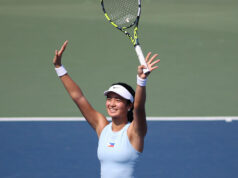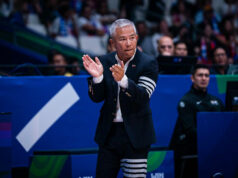Roger Federer was ready to lose. He didn’t want to; the 20-time major champion headed into the Australian Open fully expecting to compete for yet another title. In fact, he put his trademark competitiveness on display against 47th-ranked John Millman in the third round, surviving a tough match that went the distance and included two tiebreakers, one in the final set. Unfortunately, he found his game so hampered by a groin pull that he wound up producing unforced error after unforced error in the quarterfinal round the other day. Down two sets to one and facing imminent defeat in the fourth against unseeded Tennys Sandgren, he contemplated his immediate future and figured he was meant for an early exit. But still he soldiered on.
In retrospect, Federer didn’t do anything extraordinary en route to mounting the comeback win. He was simply himself — handicapped by his advancing age and perhaps nowhere near his sharpest, but nonetheless determined to keep plodding on until there were no balls left to play. The doggedness proved to be an impenetrable wall for Sandgren, who had seven match points to put him away, but who didn’t — or, to be more precise, couldn’t — for a variety of reasons. And of those reasons, none proved more compelling than his resolve, which produced a fifth set that he ultimately took with ease.
Federer declared himself extremely lucky in the aftermath. Indeed, he was; a performer more seasoned than Sandgren may well have known how to seal the deal. If anything, though, his epic comeback the other day underscored the most important ingredient for his successes: the only opportunities that matter are the ones at hand, so best make the most of them. He did, and thus lived to fight another day. And, to his credit, he knew he flirted with disaster, and understood that he’s not likely to be as fortunate the next time around.
Indeed, Federer will have his work cut out for him in the Round of Four. Defending champion Novak Djokovic awaits, and he’s given little to no chance of advancing to the Final. Which is fine by him; the less he is viewed as a favorite, the less pressure there is on him to deliver. But he will, as he always has. He did against Millman. He did against Sandgren. And, regardless of the outcomes, he will continue to do so every time he treks to the court.
Anthony L. Cuaycong has been writing Courtside since BusinessWorld introduced a Sports section in 1994. He is a consultant on strategic planning, operations and Human Resources management, corporate communications, and business development.



